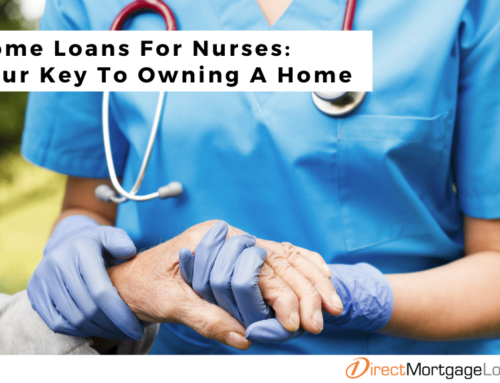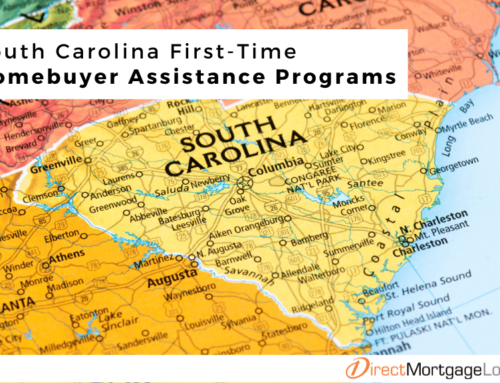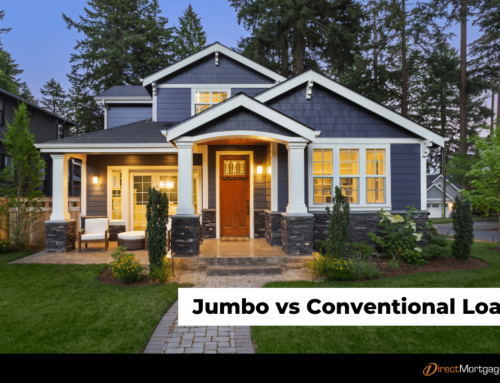Have you heard about the Good Neighbor Next Door program? This initiative, offered by the U.S. Department of Housing and Urban Development (HUD), provides incentives to specific professionals who serve their communities. In this article, we will explore the details of this program, including its benefits, requirements, drawbacks, and the application process.
Subscribe to our blog to receive notifications of posts that interest you!
What is the Good Neighbor Next Door program?
The Good Neighbor Next Door program provides housing incentives for law enforcement officers, firefighters, emergency medical technicians, and teachers to assist these professionals with their home purchases. Eligible buyers could receive a 50% discount on the listing price of a single-family home in a revitalization area, provided they live in the property for a minimum of three years.
How the Good Neighbor Next Door program works?
The Good Neighbor Next Door program is a government initiative aimed at revitalizing communities by making homeownership more affordable for those who serve them. Law enforcement officers, teachers, firefighters, and emergency medical technicians could qualify for significant discounts on HUD-owned properties.
To participate, eligible buyers can purchase a HUD-owned home at a 50% discount during a seven-day period. If you use an FHA loan, you may only need to put down $100. However, to benefit from the program, homeowners must live in the property as their primary residence for at least three years.
The program operates as a dual mortgage system. A standard mortgage from a lender covers half of the home’s price, while a “silent” second mortgage from HUD covers the other half. The second mortgage has no interest and requires no payments.
Pros and Cons of The Good Neighbor Next Door Program
Before deciding whether the Good Neighbor Next Door Program is right for you, it’s important to carefully consider the pros and cons.
Good Neighbor Next Door Pros
- Substantial Savings: Eligible buyers could receive a 50% discount on the purchase price of a qualifying home, making homeownership significantly more affordable.
- Low Down Payment Options: When using a FHA loan, buyers may qualify for a down payment as low as $100 with the option to finance closing costs.
- Community Impact: By residing in a revitalizing neighborhood, program participants contribute to community improvement, which can potentially increase property values over time.
Good Neighbor Next Door Cons
- Strict Eligibility Requirements: The program is limited to specific professions: law enforcement officers, firefighters, EMTs, and teachers employed within the target community.
- Residency Commitment: Participants must commit to living in the purchased home as their primary residence for at least three years.
- Limited Housing Inventory: The program offers a limited number of HUD-owned homes in designated revitalization areas. These homes are highly competitive and available for a short period.
HUD’s Good Neighbor Next Door: Good Neighbor Next Door Houses
Good Neighbor Next Door homes are typically former FHA-insured properties which have gone through foreclosure. Once HUD takes ownership, some of these homes are available for purchase through the program at a discounted price for a limited time.
Homes eligible for the Good Neighbor Next Door Program must be in government-designated revitalization areas. These are often communities facing challenges like low-income levels, high foreclosure rates, and low homeownership. The program aims to revitalize these neighborhoods.
The good news is that there is a direct HUD property search link to find properties available for purchase with this program. The properties for purchase will be listed on this website for seven days. After seven days, they are no longer up for sale.
Who qualifies for the Good Neighbor Next Door program?
To qualify for the Good Neighbor Next Door Program, you must meet specific occupation criteria. Eligible professions include:
- Teachers: Must teach full-time at a state-accredited public or private school (pre-K to 12th grade) and purchase a home within your school’s district. Private school teachers need confirmation from their principal that at least one student lives in the neighborhood.
- Law Enforcement Officers: Must work full-time in law enforcement for a federal, state, local, or tribal government, and serve in the locality where you plan to buy a home.
- Firefighters: Must be a full-time firefighter employed by a fire department within the federal, state, local, or tribal government where you plan to buy a house.
- Emergency Medical Technicians (EMTs): Must be a full-time EMT working for an emergency medical services unit within the locality where you plan to buy a home, employed by a federal, state, local, or tribal government agency in that area.
Eligibility Requirements for HUD’s Good Neighbor Next Door Program
In addition to the occupation-specific criteria, there are additional requirements you must meet to be eligible for this program. These include:
- Must be a law enforcement officer, teacher, firefighter, or emergency medical technician in the property area.
- Have a minimum credit score of 580 (this could vary based on the lender).
- You or your spouse must not have purchased a home through this program previously.
- You or your spouse must not have owned any home in the year prior to bidding on HUD’s property.
- You must certify that you will remain in the same qualifying position (law enforcement, teacher, firefighter, or emergency medical technician) for at least one more full year.
- Must live in the property as your primary residence for a minimum of three years.
How to apply for the Good Neighbor Next Door Program
If you’re looking to apply for the Good Neighbor Next Door Program, there are some general steps you can take to purchase a Good Neighbor home.
- Speak with a Loan Officer: Start by speaking with a Loan Officer to confirm your eligibility. Remember, to qualify for the $100 down payment, you need to work with an FHA-approved lender.
- Get Pre Approved: Obtain a mortgage pre approval from your lender. Having pre approval demonstrates your financial readiness and can strengthen your bid when competing with other interested buyers.
- Find a HUD-Registered Real Estate Agent: You must work with a registered HUD real estate agent in your area. You can use the HUD online search tool to find a registered agent who is familiar with the program and can guide you through the process.
- Search for a Home: Work with your real estate agent to find a HUD-owned property in a designated revitalization area. Be prepared to make bids quickly as there may be limited availability.
- Submit Bid: When you’re ready to make an offer, your agent will submit a bid on your behalf for the full list price of the home. If there are multiple bids, a random lottery will be conducted to decide who gets the 50% discount on the purchase price.
- Closing: If your bid is selected, you’ll proceed with the closing process. This includes finalizing the paperwork, securing homeowners insurance, and transferring ownership of the property.
Other Options Besides the Good Neighbor Next Door
Due to limited housing inventory and competition, qualifying for the Good Neighbor Next Door program could be challenging. Fortunately, there are alternative options to consider.
- Down Payment Assistance Programs: These programs offer financial support to help cover the upfront costs of buying a home. With over 2,000 programs available nationwide, you may find one that suits your needs.
- First Responder Home Loans: Many lenders offer specialized home loan programs for first responders. These programs often include benefits to help with the upfront costs of purchasing a home.
- Government-Backed Loans: For veterans or buyers in designated rural areas, government-backed loans, such as VA and USDA loans, offer advantages like no down payment or mortgage insurance.






Leave A Comment
You must be logged in to post a comment.